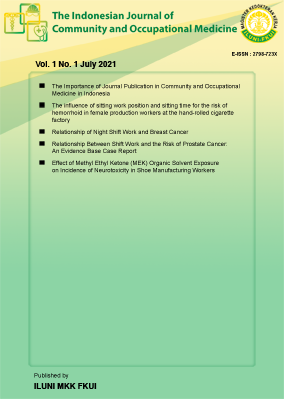e-ISSN 2798-723X

By submitting a manuscript to the Indonesian Journal of Community and Occupational Medicine (IJCOM), authors confirm that:
The title page should include:
Organize the manuscript using the following sections:
Examples of reference formatting:
All submitted manuscripts will be screened using plagiarism detection software. Manuscripts with significant levels of plagiarism will be rejected without peer review.
For inquiries, please contact the editorial office via the Contact Page on the IJCOM website.

Published by
IJCOM
in an independent format of entity, and in a scientific collaboration with:
ILUNI MKK FKUI (Alumni Association of Occupational Medicine Magister, Faculty of Medicine, Universitas Indonesia)
PRODI MKK FKUI (Magister Occupational Medicine Program, Department of Community Medicine, Faculty of Medicine, Universitas Indonesia)
Department of Community Medicine, Faculty of Medicine, Universitas Indonesia
Jl. Pegangsaan Timur No.16, RT.1/RW.1, Pegangsaan, Menteng, Central Jakarta, Jakarta 10310, Indonesia

This work is licensed under a Creative Commons Attribution 4.0 International License
